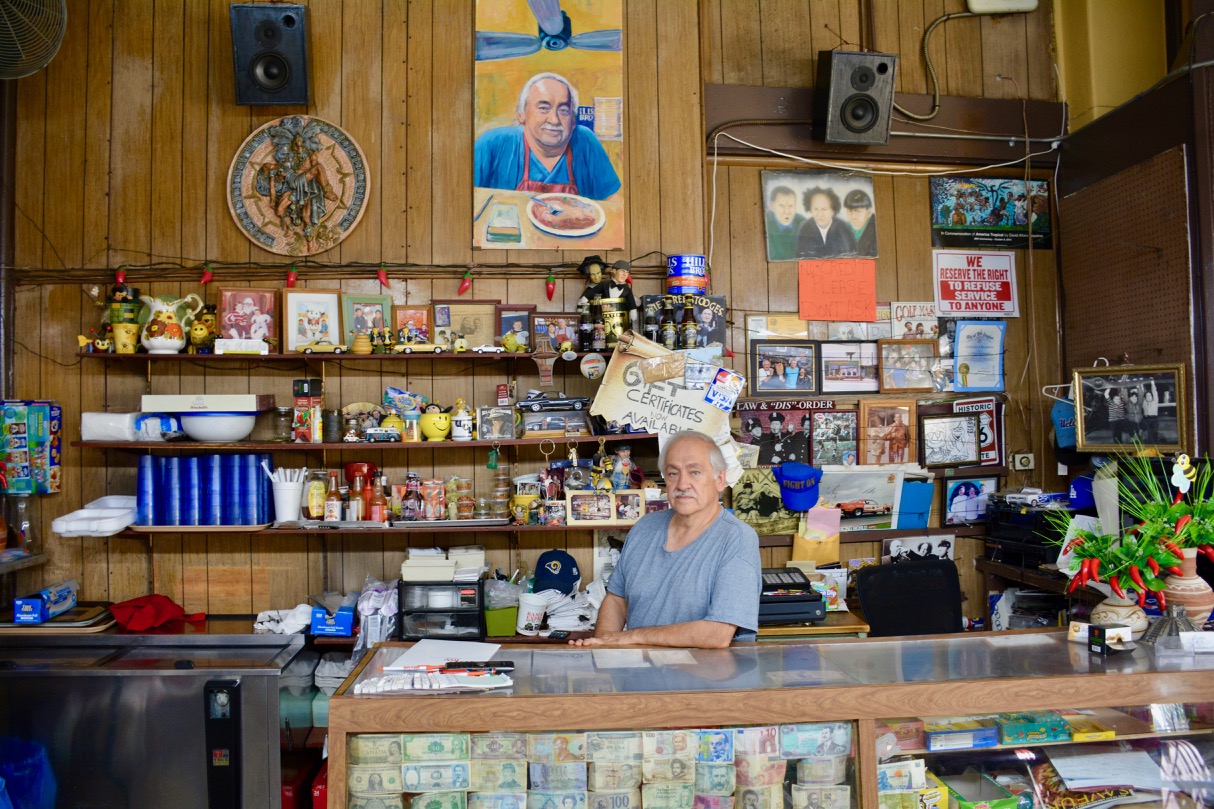[dropcap size=big]T[/dropcap]he portrait of Rogelio Fonseca painted by a longtime customer of La Abeja hangs high over a wall filled with the rest of the gifts collected over the years by his iconic restaurant’s loyal patrons. It’s mostly a mix of “Three Stooges”-inspired trinkets and Aztec art, all centered around a framed photo of Fonseca’s parents and original owners, Gloria and Jose. They came to Los Angeles from Mexico City in 1955 and opened the bakery-turned-restaurant on the corner of Figueroa Street and Pasadena Avenue in 1969.
“I’ve been waiting for this moment my entire life,” Rogelio tells me as he shares just a little bit of the sentimental value behind his favorite items on the wall. “I think it’s time for me to probably hang up the tennis shoes and you know, call it a wrap.” The moment that he is talking about is turning 65, the age he always told himself he was going to retire from working in his restaurant. He is 64 and his birthday is this month.
“If you let your body go too long, it becomes like running a car without oil. Yeah, it’ll keep going for a little bit—then pop! It’ll snap.”
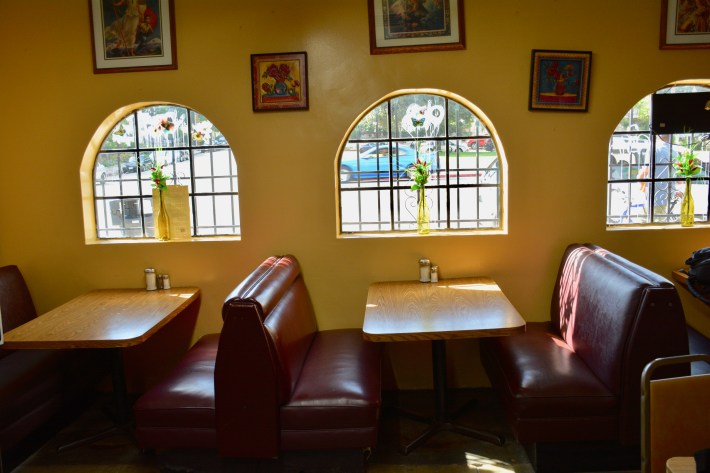
Rogelio is sharing bits and pieces of hospitality wisdom with me that he’s collected over the years while he gets ready for the big morning where he won’t have to wake up at the crack of dawn to start simmering the chuck steak for his juicy beef machaca, or blanching the tomatoes for his salsa passed down from his mother in his famous huevos rancheros.
“I miss them all and the reality is that the older you get, the more affection you need by loved ones.”
In a career that venerates an unrelenting work ethic and a food media landscape that loves to tout lifers in the industry who refuse to retire, Rogelio is doing his own thing. “I’m just looking forward to enjoying time with my wife again and making up for all those years we haven’t been together now that we’re older. When you have a restaurant, you give up a lot: time, relationships, social life, it makes you go ‘damn’ when you're my age and realize it all.”
Rogelio’s has known his wife Julia since middle school and up until last year when her health got in the way, she worked the front of the house alongside Rogelio. He admits that her absence has also been a factor in his decision to let go of La Abeja. “It’s been kind of lonely without my wife here. I always grew up with someone in my family here, whether it was my wife, my mom, my dad, my aunt, my kids, and my grandkids. They all made working fun. They’re all gone. I miss them all and the reality is that the older you get, the more affection you need by loved ones.”
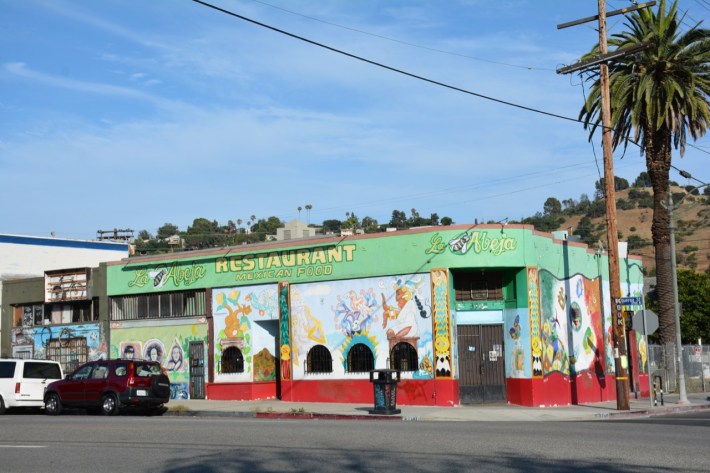
Good Times and Bad Times at La Abeja
Rogelio is soft-spoken, equally charming and witty in both English and Spanish, a personal trait that doesn’t always come easily for someone who shares two cultures and languages. Get him started and he’ll take you for a ride down La Abeja’s memory lane.
“I was 14 when I first started and boy, those were the worst years of my life.”
“We’ve always stuck to my mom’s motto in the kitchen: Keep it simple. Keep it fresh, and keep it small.”
Like many other sons and daughters of immigrants whose parents opened restaurants upon immigrating to the U.S., Rogelio was roped into the hospitality industry and learned the value of hard work at a young age. “I mopped the floors before I took off to school at 6 AM and helped my mom in the kitchen for the rest of the day after school, then through the summer too,” Rogelio recalls. “Owning a restaurant teaches you to accept whatever problems come your way and deal with them, but the early-morning-everyday thing still kills me,” Rogelio says with a chuckle.
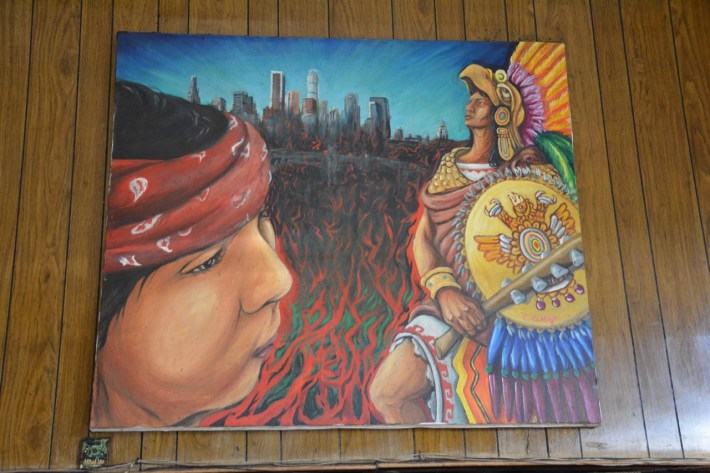
But for every bad time spent at the restaurant, there were so many good times. “Gee willikers, there are so many good memories inside here. The kinds of experiences and thoughts that you share with people every day at a restaurant are the kinds of things you can’t pay for or go to school to learn about.”
“I’m already sad as it is thinking about what I have to do but I am doing this for my own health and that has no value."
When asked about the secret to the success of keeping a restaurant open for 50 years. Rogelio answers. “We’ve always stuck to my mom’s motto in the kitchen: Keep it simple. Keep it fresh, and keep it small.” Though he chimes in afterward that it is also important to keep a “genuinely nice attitude with your customers and your staff.” This restaurant philosophy explains why the last cook Rogelio hired was 25 years ago, and why one of the restaurant’s first cooks is still working the kitchen to this day—45 years later. “No pressure, just communicate and do.”
He later adds that it helps to treat everyone with respect and kindness. He credits these values to helping La Abeja live through the deadly gang era of northeast L.A. during the 90s. "My mom earned their respect with kindness and my dad fed them bean and cheese burritos. Some of those cholo guys, they're no worse than you or me. All they need is some food in their stomachs or a pat on the back, but people just don't how to approach them the right way."
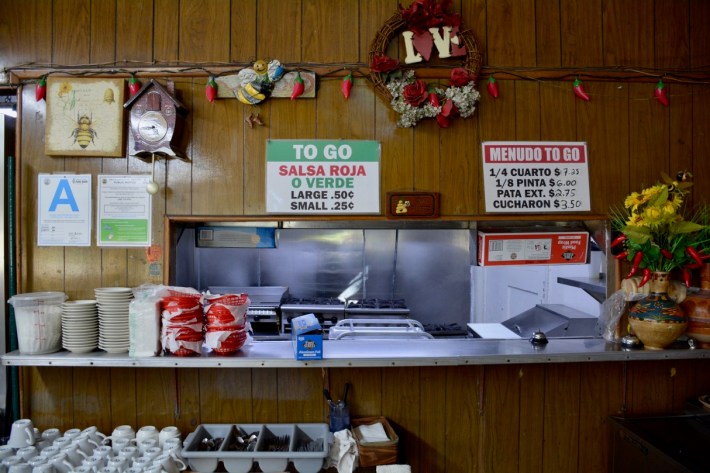
Life After La Abeja and “La Abeja Day”
“My body is fatigued—not worn-down or tired—fatigued,” Rogelio explains that his doctor is a fan of his business decision after he advised him to rest more. “Before anything, I just want to stay home for a couple of months and relax.” He has no overdue plans to travel to Europe or take any extended vacations, “I’m a simple guy who likes to eat the same things I’ve always eaten. I'm a local guy.”
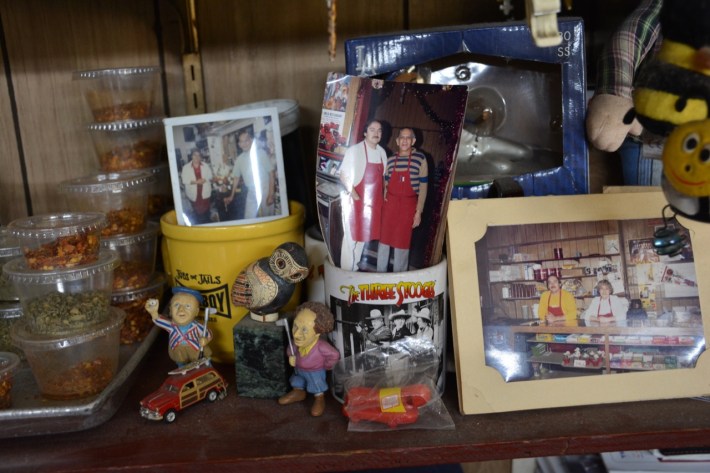
We are sitting at the restaurant on a weekday afternoon. It’s in the high 90s outside and the fans inside the restaurant are at whirring at full blast. Both the morning and lunchtime rushes are over but La Abeja’s customers—cops, city workers in suits, families, new-school young couples who come in for the burritos—all have no idea that the restaurant’s days are now numbered.
“I’ve gotten a bunch of letters and offers from people interested in buying La Abeja over the years. I wasn’t ready then but I’m ready now.” While there is no approximate date set for the last day of service yet, Rogelio confirms to L.A. Taco that he is officially putting the entire building that houses La Abeja for sale, along with a couple of units next door that he also owns. He estimates that the last day of service will be towards the end of the year, but if he is able to sell sooner, it may be as early within the next 30 days.
Since the restaurant has no active presence online, it looks like the only way people will know about its last day of service is to come in, feast like there's no tomorrow, and ask themselves.
“I’m already sad as it is thinking about what I have to do but I am doing this for my own health and that has no value. I used to look at the glass half full, and now I'm starting to see it half empty. I figure, at 65, I may have burned up three-quarters of my life already, I got one quarter left and I want to enjoy what’s left of it.”
Rogelio fantasizes about being able to come into La Abeja under its new ownership to meet up with a friend as a customer for once, and not as an owner. “There is a whole mess of new kids coming in with different ideas. They’ll probably add new life to the place by adding a brand new espresso machine or something.” But the reality is that due to its high-demand location, that dream future of a revamped La Abeja is outweighed by the current trend of out-of-state money coming into the highly competitive property marketplace in northeast L.A. When I bring up the possibility of an Abeja-less future, Rogelio gets a little antsy and starts to quickly tap his fingers.
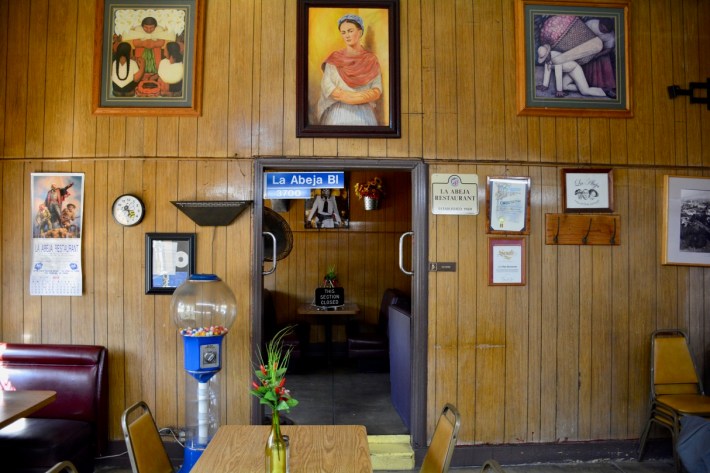
There is one silver lining during this end of an era: La Abeja restaurant is getting its own day in Los Angeles on August 6th. While the timing is a little ironic, Rogelio credits councilmember and longtime customer of La Abeja, Gil Cedillo, for officially making August 6th “La Abeja Day.” “It’s pretty strange because not that many restaurants get that kind of honor, but it’s really amazing.”
For now, if you are a fan or have any nostalgic tie to the place, it’s probably a good idea to come in and get your fill of La Abeja’s time-honored dishes. Since the restaurant has no active presence online, it looks like the only way people will know about its last day of service is to come in, feast like there's no tomorrow, and ask themselves.
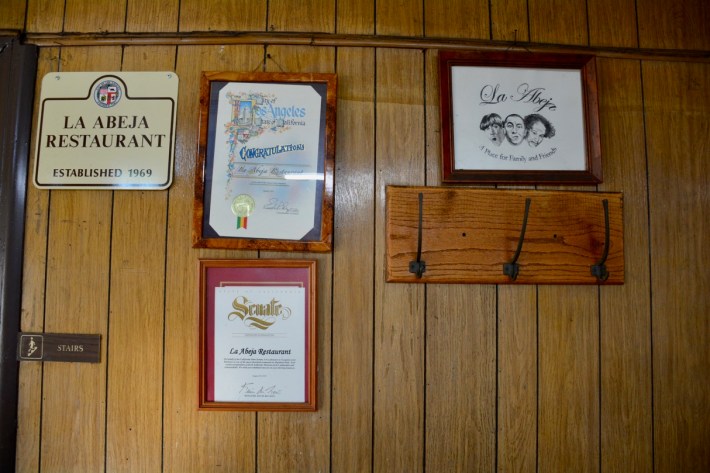
When pressed where La Abeja’s loyal customers should take their huevos rancheros patronage in a post-La Abeja world, Rogelio is stumped. “Shit, that’s a good one.” He admits that he doesn’t go out much for Mexican food. “Maybe I’ll do a cookbook with all of our recipes so our customers can make it at home. We’ll see.”
